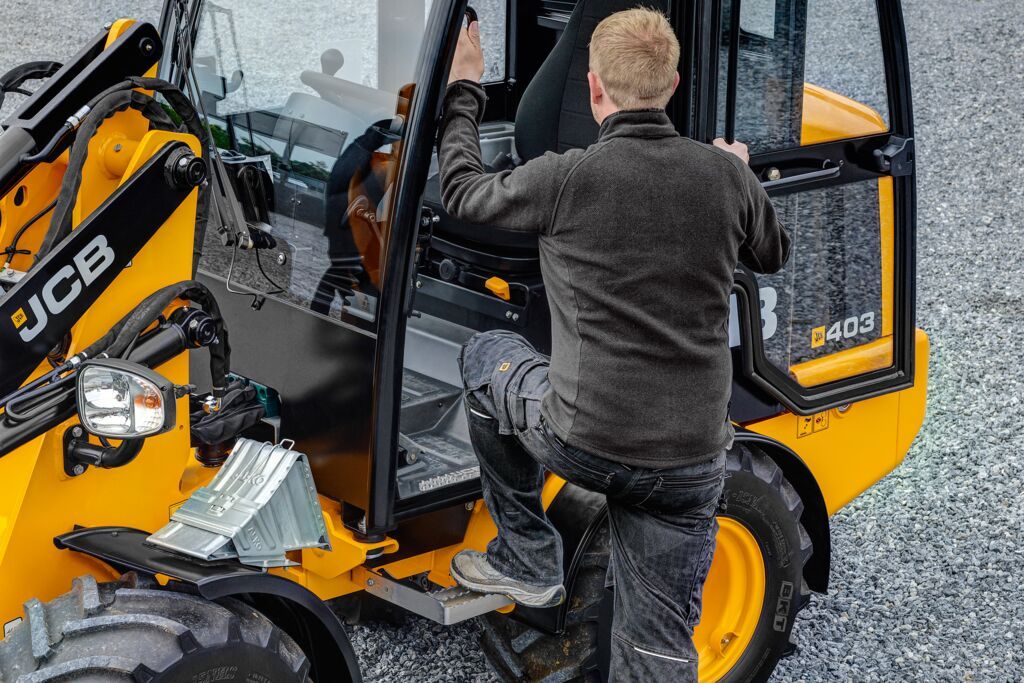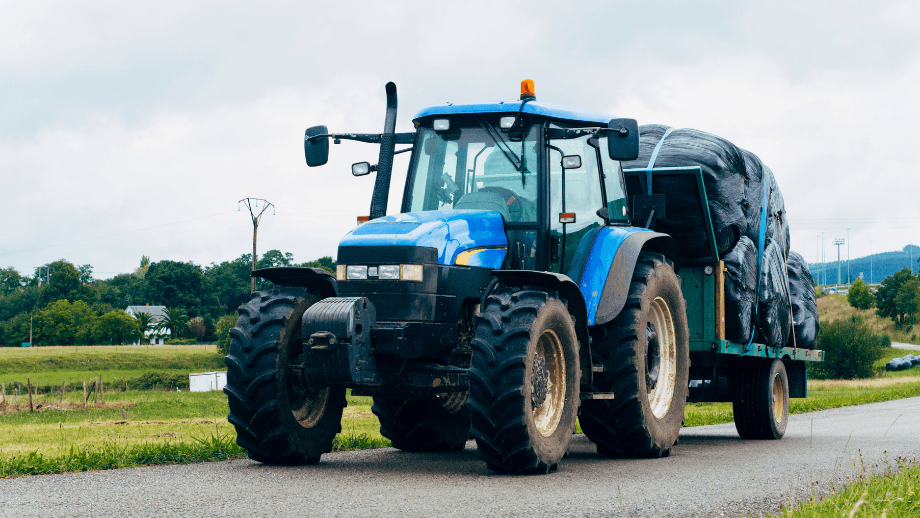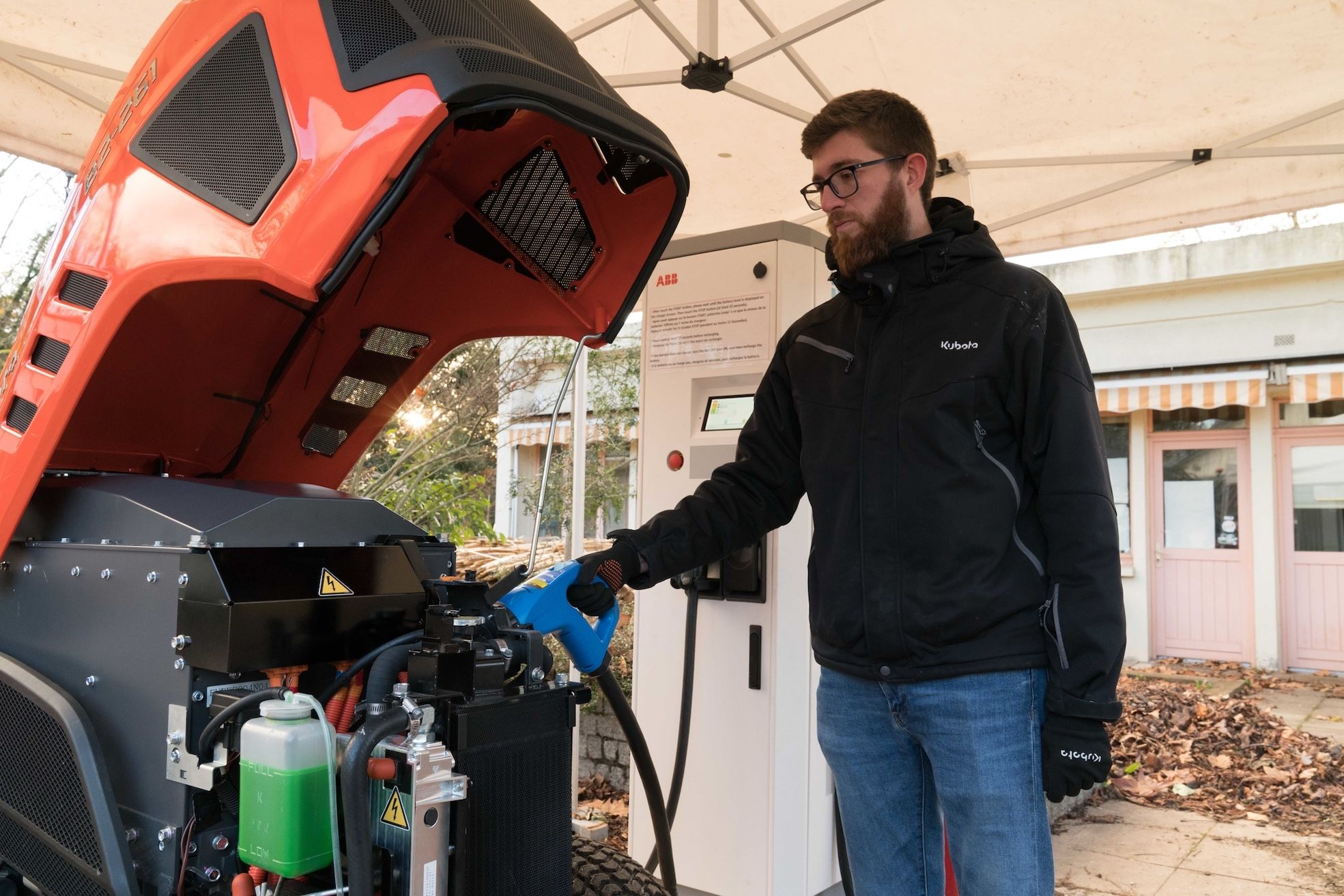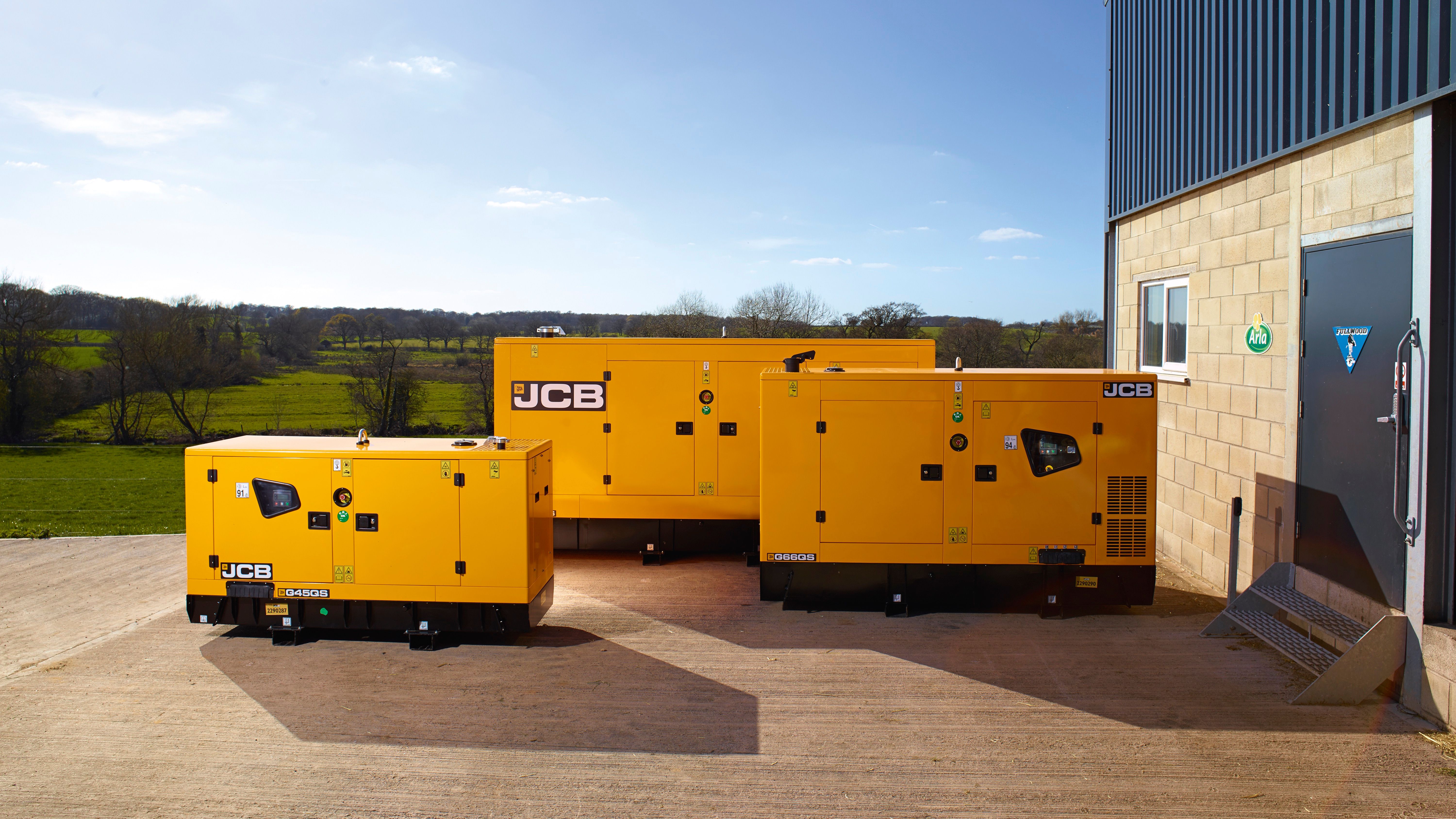
Diesel or electric wheel loaders: which is the better choice?
Electric wheel loader or diesel engine - what are the differences in performance & area of application?
Whether in agriculture, the construction industry or logistics work: Wheel loaders are among the most versatile machines when it comes to loading and transporting goods and are therefore very popular. But if you want to buy a wheel loader today, you should not only think about what power the machines should have, but also what type of drive you want: diesel or electric? But which is the better choice for which application? What advantages and disadvantages do they have and for which area of application are they suitable? We'll tell you.
What are the main differences between diesel and electric wheel loaders?
The most obvious difference between electric and diesel wheel loaders is probably their drive system: While classic wheel loaders are powered by a diesel engine, electric wheel loaders usually have a powerful battery that drives an electric motor for the drive system and another electric motor for the working hydraulics. However, the electric wheel loader differs from other wheel loaders not only in terms of its motor: The modified drive also results in differences in terms of emissions, performance, economy & maintenance.
Emissions from diesel vs. electric wheel loaders
One of the main arguments that many cite for using an electric loader instead of a conventional wheel loader is that it is more environmentally friendly. In fact, electric wheel loaders do not release any environmentally harmful CO2 emissions or soot particles while driving - this is not only good for the environment, but also ensures that electric wheel loaders can be used in enclosed spaces without any concerns, whereas conventional wheel loaders always require adequate ventilation. The issue of emissions also includes the noise level of the machines. Electric wheel loaders can also score points here: Wheel loaders with diesel drive are on average around 20 dB(A) louder for the same size. The reduced noise level is particularly advantageous when working in urban areas or with animals.
Performance of diesel vs. electric wheel loaders
Especially when it comes to performance, there is a persistent rumor that electric loaders are less efficient and powerful. In practice, however, this rumor does not hold up: In terms of pushing power, e-loaders are generally on a par with diesel loaders of the same size. One shortcoming of electric wheel loaders, however, is their limited operating time: depending on the model, this is around 4 hours of continuous use - which is not sufficient for every area. Wheel loaders with diesel engines clearly have the edge here, because not only can they last longer on one tank of fuel, they can also be refueled within a few minutes. Electric wheel loaders, on the other hand, need 1-2 hours to fully recharge the battery, even with a quick-charging cable. If a quick-charging cable is not available, charging can take even longer.
Profitability and maintenance of diesel vs. electric wheel loaders
Various factors influence the question of whether a machine works economically or not, but the acquisition, operating and maintenance costs are taken into account in particular. In terms of purchase costs, diesel loaders are still ahead: these are around 15-20% lower than the purchase costs of electric loaders. In the long term, however, the purchase of an electric loader can still be worthwhile, as the fuel costs are significantly lower. On average, the energy costs for loading 100 tons with electric loaders are less than half the energy costs of diesel loaders. The reason for this is not only the lower cost of electricity, but also the higher efficiency of the electric engine compared to the diesel engine. In addition, electric wheel loaders consume almost no energy at all when stationary, unlike diesel engines. This is a huge advantage, especially for wheel loader work, which often requires a brief dismounting, for example to secure loads or open gates. The electric wheel loader becomes even more attractive if you have your own photovoltaic system on the roof - this reduces energy costs even further.
The electric wheel loader also scores highly in terms of maintenance costs: The electric engine requires no regular maintenance. Regular wheel loaders, on the other hand, require regular inspection and maintenance of the diesel engine: the engine oil and filter must be changed at fixed intervals. For this reason, diesel wheel loaders incur higher maintenance costs.
Summary:
Differences between electric wheel loaders & diesel wheel loaders
Diesel wheel loader:
- Robust design
- Fast refueling
- Long operating times
- Higher emissions
- Higher maintenance costs
Electric wheel loader:
- Emission-free
- Quiet operation
- Lower energy costs
- Less maintenance
- Limited range
- Charging times must be planned for
Areas of application for diesel or electric wheel loaders
Whether a diesel or electric wheel loader is more suitable for a company depends primarily on the area of application for which the machine is intended. Emissions and running and charging times in particular have the greatest influence on whether an electric wheel loader is profitable or even necessary for a company or whether a wheel loader with a diesel engine is more worthwhile.
Areas of application for electric wheel loaders
Electric wheel loaders have two major advantages in particular: they are very quiet and produce no emissions. This makes them a particularly interesting choice for noise-sensitive or emission-restricted areas. On the one hand, this applies to the construction industry, e.g. for work in inner-city areas, but also for tunnel construction or in enclosed buildings. But it is not only the construction industry that benefits from electric wheel loaders: Electric motors are also an interesting option in other sectors in which forklift trucks are increasingly used indoors. These include industrial plants and logistics centers, for example, but also greenhouses and zoological gardens.
One particularly interesting area of application for electric wheel loaders is agriculture. Wheel loaders have become increasingly popular here in recent years for various reasons. On the one hand, electric loaders are particularly suitable for working in stables and barns thanks to their emission-free engine, and on the other hand, the particularly quiet engine is a great advantage, especially when handling animals. In addition, the wheel loader is often only used in phases on farms, meaning that the 4-hour runtime is sufficient, as the wheel loader can be recharged as required during breaks. However, a particularly big advantage for many farms is that they already have photovoltaic systems on their large roofs, which make it particularly cost-effective to charge the machine.
Areas of application for electric wheel loaders:
- Urban areas
- Municipal works
- Tunnel construction
- Industry
- Logistics
- Greenhouses
- Zoological gardens
- Agriculture
Areas of application for diesel wheel loaders
Wheel loaders with diesel engines have one particular advantage: their long running time combined with the ability to refuel quickly if necessary. For this reason, they are particularly suitable for applications where machines have to run for very long periods at a time, such as large handling centers or landfill sites. In addition, diesel wheel loaders can also be used where the necessary infrastructure for charging electric loaders does not exist. This is particularly the case when working in undeveloped or remote areas, e.g. in road construction, but also when the machines change location frequently, for example in garden landscaping or rental.
Areas of application for electric wheel loaders:
- Construction
- Road construction
- Gardening and landscaping
- Rental
- Earthmoving
- Waste & recycling companies



